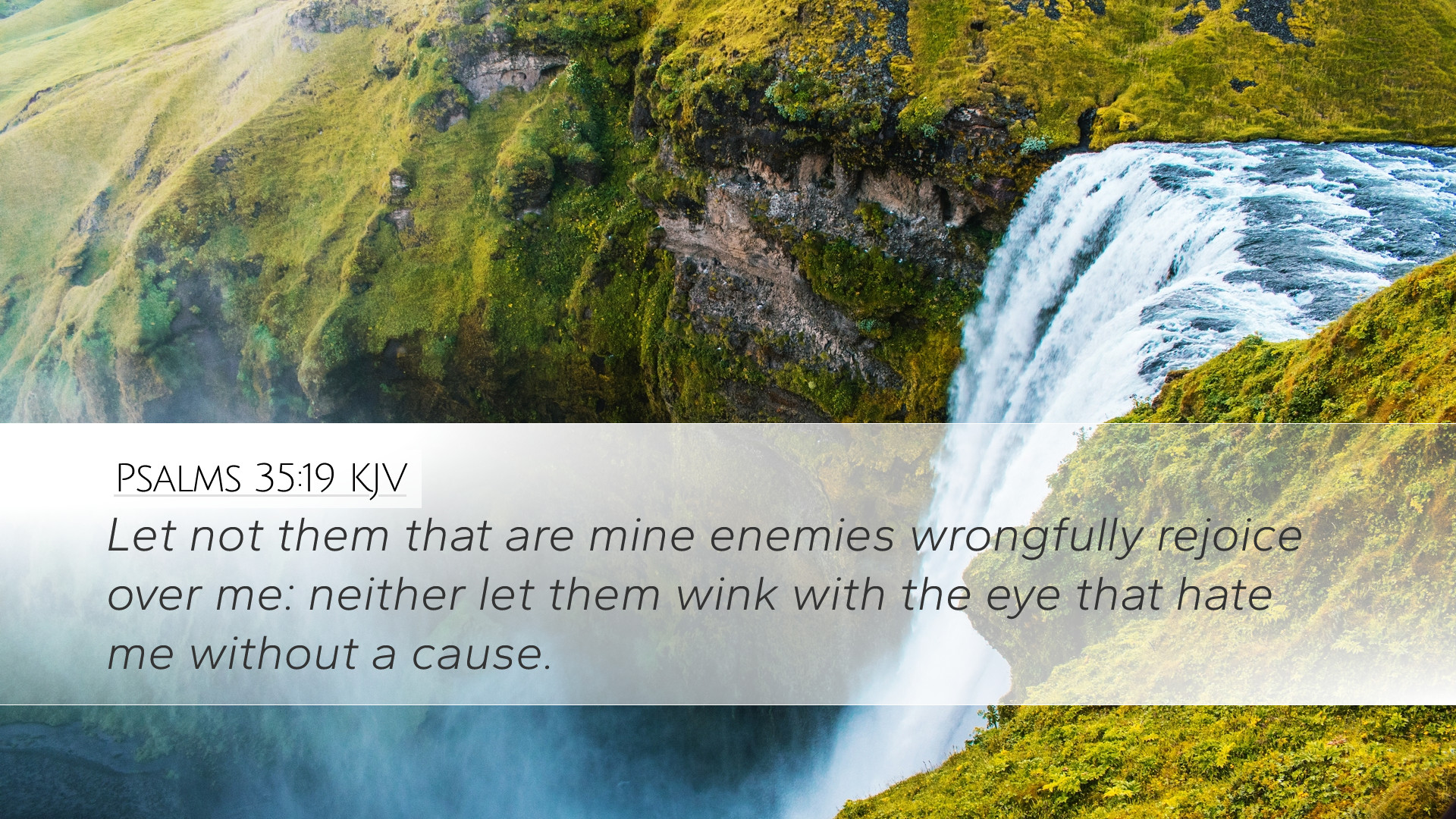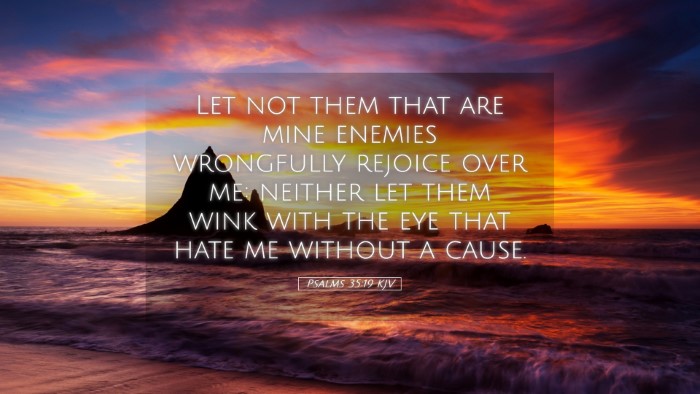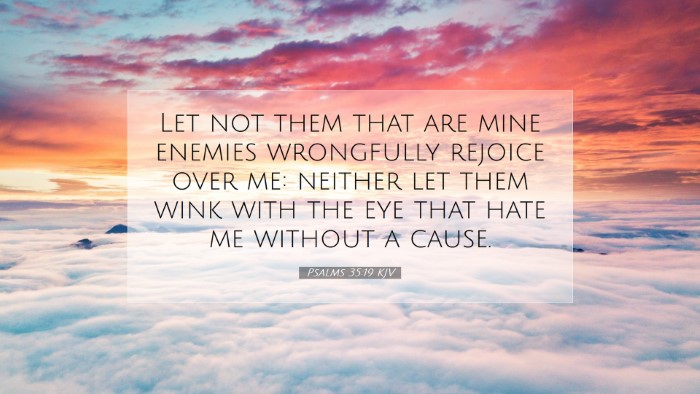Commentary on Psalms 35:19
Verse Text: "Let not those who are my enemies wrongfully rejoice over me, nor let them wink with the eye who hate me without a cause."
Introduction
Psalms 35 is a plea for deliverance from enemies, reflecting a deep sense of personal injustice faced by David. This particular verse encapsulates a critical concern David has about the malicious joy of his adversaries. The interpretations of this verse from prominent public domain commentaries provide valuable insights for pastors, students, theologians, and scholars.
Exegesis
Contextual Background
David is often seen wrestling with the challenges posed by oppressors during his lifetime. The psalm is structured as a supplication, expressing both his longing for justice and a plea for divine intervention. The phraseology surrounding enemies and their actions gives us a poignant picture of the internal struggles and external turmoil faced by the faithful.
Analysis of Key Phrases
- “Let not those who are my enemies”: This opening phrase sets a personal tone, indicating a direct confrontation with adversaries.
- “wrongfully rejoice over me”: Suggests that the opposition that David experiences is unjust and unwarranted, highlighting the theme of righteousness and divine justice.
- “nor let them wink with the eye”: A metaphor for conniving and insidious ways in which enemies might undermine and relish in the downfall of the psalmist. This captures the covert nature of their malice.
- “who hate me without a cause”: Echoes Jesus's sentiment in the New Testament (John 15:25), indicating that sometimes hatred stems from righteousness itself.
Insights from Commentators
Matthew Henry
Matthew Henry emphasizes the desire of David to see justice served. He notes that the prayer is not merely about the suffering of David, but about the nature of God's justice intervening in human affairs. He indicates that believers can expect opposition, particularly when they are committed to a righteous path. Henry underscores that the enemies here are depicted not just as personal rivals but as representations of evil that rejoices in conflict against the righteous.
Albert Barnes
Barnes brings illumination on the implications of “wrongfully rejoice.” He interprets it as a reminder that the true church would face hostility without just cause throughout history. The phrase denotes how malicious joy is often a consequence of the type of opposition that is indicative of moral decay. Barnes also argues that David’s cry is a precursor to a larger theological principle about the vindication of the faithful, where divine justice prevails against unrighteousness.
Adam Clarke
Clarke reflects on the emotional and spiritual aspects of this plea for deliverance. He discusses how conflicts with adversaries can lead to deep sorrow and despair, suggesting that the phrase “wink with the eye” indicates a mocking, playful demeanor from David’s enemies, which heightens the sense of isolation and betrayal. His commentary suggests that this verse should inspire believers to cry out for divine assistance, knowing that God is aware of the injustices faced by His people.
Theological Implications
- The Nature of Enmity: This verse compels us to examine the nature of enmity towards the faithful and how spiritual warfare often manifests in social and personal relationships.
- Righteousness and Suffering: The concept that suffering can be without cause speaks to the larger Christian narrative of Christ’s suffering, providing a pastoral context for discussing unjust persecution.
- Divine Vindication: The confidence that one's plea is known to God reinforces faith in His justice, encouraging believers to rely on divine deliverance in times of trial.
Practical Application
For pastors and teachers, this verse serves as a powerful reminder of the realities of spiritual adversity. It provides an opportunity to teach about the need for lament, acknowledging injustice, and trusting in God's protection and vindication. For students and scholars, understanding this verse allows a deeper grasp of the biblical themes of suffering, righteousness, and divine justice.
Conclusion
Psalms 35:19 encapsulates a poignant plea against the backdrop of unjust suffering faced by believers. Insights from the commentaries of Matthew Henry, Albert Barnes, and Adam Clarke bring to light the multifaceted nature of this text. This verse encourages believers to remain steadfast in faith even when faced with adversaries who rejoice without cause. Ultimately, it shapes a theology that reconciles the existence of injustice with the assurance of God’s ultimate justice.


